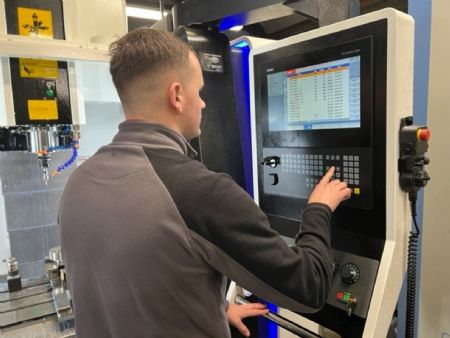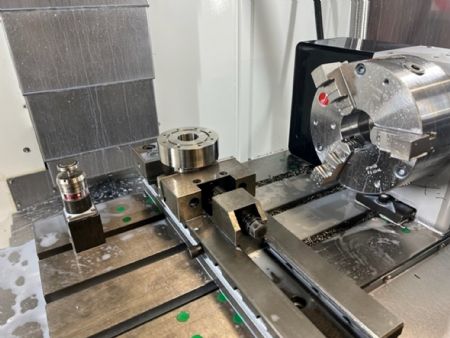
Located in Moray, North-East Scotland,
Standfast Precision Engineering Ltd provides sub-contract manufacturing services. Since its inception over 40 years ago, the manufacturer has continually invested in machine tools to serve its clients in the local offshore and whisky distillery sectors. The latest investment is a Vulcan 710L vertical machining centre supplied by the Wellesbourne-based
Engineering Technology Group (ETG).
Located in Craigellachie where the River Spey meets the River Fiddich, Standfast is a company that has continually invested in new technology to enable the production of high quality components in everything from one-off and low-volume runs to higher-volume production. Primarily working with the oil and gas industry, Standfast has witnessed significant growth in recent years as the offshore industry has enjoyed a renaissance. With a facility that incorporates everything from manual and CNC turning, milling and EDM machining, the ISO: 9001 accredited company is evolving its business assets to satisfy the demands of its clients. The latest acquisition, a Vulcan 710L VMC with a fourth-axis Lehmann rotary unit from ETG was purchased to provide additional capacity and increase the throughput of its smaller components.

Company owner and director Graham Wilson said: “We had a small bed three-axis machine with a rotary unit, but the compact work area was limited even further by the fourth-axis unit. This meant we could only process very small parts or we would have to transfer components to our larger bed machines that are dedicated to larger jobs — disrupting our workflow and creating capacity issues. We spoke to ETG’s representative in Scotland, Ross Milne, and he recommended the Vulcan 710L VMC.
“We reviewed the market, looking for a machine with a Siemens CNC in a short lead time, as our workload was ramping up and the issue was causing a bottleneck. ETG provided the solution with the Vulcan, and it has been a tremendous asset since it was installed.”
With a limited floor area, the compact Vulcan slotted straight into the Scottish manufacturer’s busy shopfloor. The outgoing machine only had a worktable of 500mm, which was too small to fit both a fourth axis unit and a vice for three-axis work. However, the spacious work area of the Vulcan provides a worktable of 760 x 420mm.
Large touchscreen interfaceCNC Machinist at Standfast, Mr Scott Coull explained: “With the space in the Vulcan, we can fit the 4th axis unit and a tailstock to stabilise larger parts. We program parts at the machine and the new Siemens CNC has a large touchscreen interface that improves programming speed by at least 30%. We typically produce batches from 10- to 20-off, so we can program 10 to 20 jobs each week with each program taking from 15min to a couple of hours, so this saving in programming time is significant.”

Looking at the build quality and performance of the machine, Mr Coull added: “Compared to the previous machine, the Vulcan is a more rigid and robust machining centre than its predecessor and this enables us to undertake heavier cutting conditions. Furthermore, the previous spindle had a maximum speed of 8,000rev/min and the Vulcan provides 10,000rev/min, this significantly improves our productivity, especially on softer material components such as aluminium.”
The family business owned and run by Mr Wilson and his wife Michelle has also witnessed improved surface finishes, product quality and reduced downtime since the acquisition of the Vulcan. Scott added: “While the Vulcan has a tool setting probe that eradicates our previous method of using a dial gauge on every new tool that we put in the machine. This can save us a couple of hours of manual tool setting on the machine each week. In addition, the rapid tool changer is at least 50% faster than the previous machine.”
Mr Wilson concluded: “We needed a machine with a particular specification for our requirements that was going to deliver reliability and performance. The Vulcan machine from ETG has more capacity, more torque, and a streamlined fourth-axis system and it provides the space for us to machine relatively large parts in either a three- or four-axis set-up – freeing up our staff for alternative tasks and alleviating capacity from our larger machines. Furthermore, the support from Ross and ETG has been fantastic.”